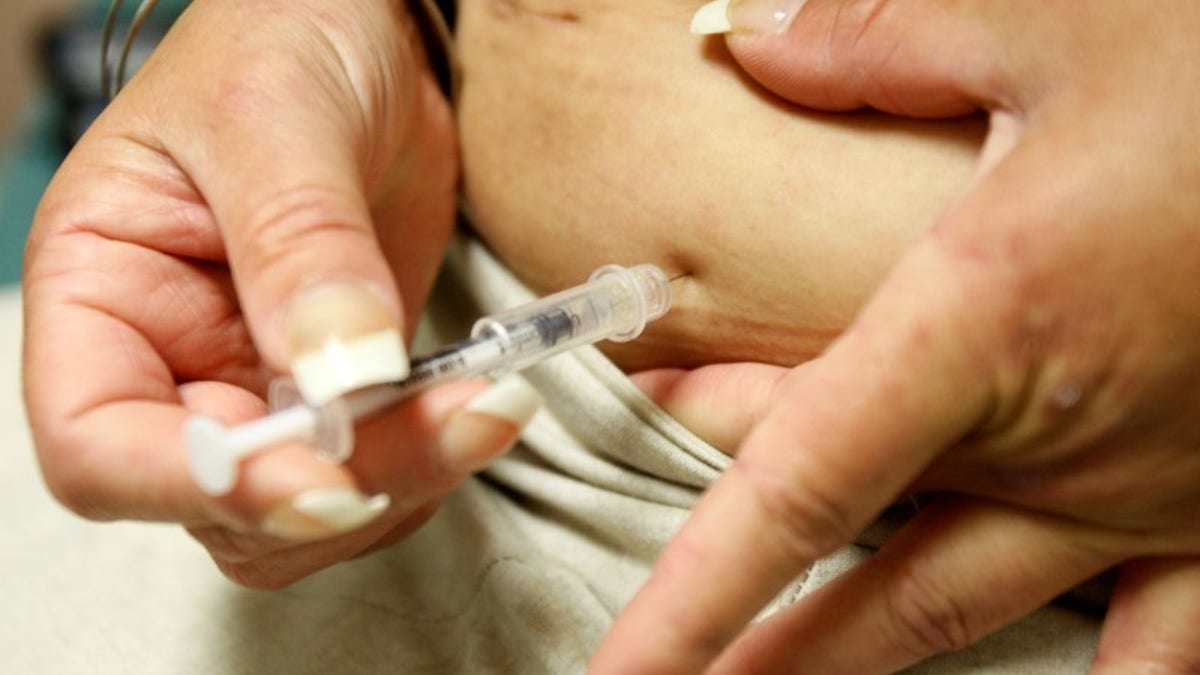
Diabetic Khachatoorian injects herself with insulin at the J.W.C.H. safety-net clinic in downtown Los Angeles (Copyright Reuters 2016)
The cost of the hormone insulin, one of the most important treatments for diabetes, rose nearly 200 percent between 2002 and 2013, according to a new study.
While other diabetes medications also increased in price, total spending on insulin in 2013 was greater than the combined spending on all those other drugs, researchers report in JAMA.
"The large increase in costs can largely be explained (by) much greater use of newer types of insulin known as analog insulins," said senior author Philip Clarke, of the University of Melbourne in Australia. "While these drugs can be better for some patients, they are much more costly than the human insulin they replaced."
For the new study, the researchers used data from 2002 to 2013 on U.S. medical spending from 27,878 people with diabetes. The participants' average age was about 60.
Among patients using insulin, the average amount used each year went from 171 milliliters (mL) in 2002-2004 to 206 mL in 2011-2013.
The average price of insulin increased 197 percent, from $4.34 to $12.92 per mL, during that time.
Annual spending on insulin per patient increased from $231.48 to $736.09 over the study period. By 2013, the per-patient spending on insulin was greater than the per-patient combined spending on other diabetes drugs, which was $502.57.
The price of oral diabetes drugs known as DPP-4 inhibitors, such as sitagliptin and linagliptin, increased 34 percent between 2006 and 2013. The cost per pill of metformin actually fell by 93 percent from 2002 to 2013.
The researchers say the price of insulin is unlikely to decline because of the regulations and cost involved with bringing comparable products to the market.
Dr. Robert Gabbay, who was not involved with the new research, said the rising cost of insulin affects the amount of money people with diabetes pay out of pocket and also impacts how they can manage their condition.
"I can tell you from seeing patients myself that there are many who can't afford their insulin and don't take it or take less of it and they're worse off for it," said Gabbay, who is chief medical officer of the Joslin Diabetes Center in Boston.
"Here is the treatment that almost one-third of people with diabetes are on and its increased in price to this degree, that's quite concerning," he said.
